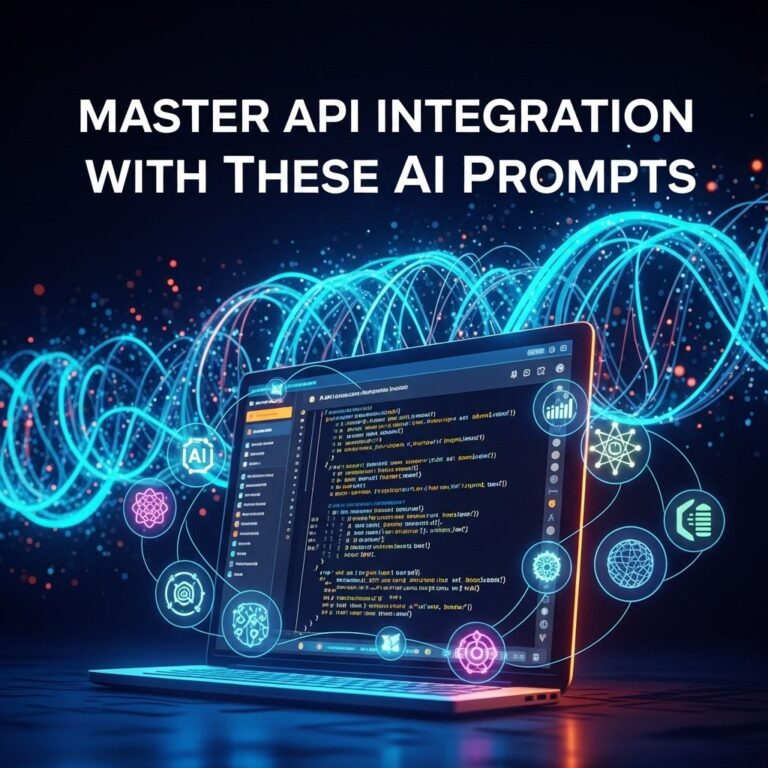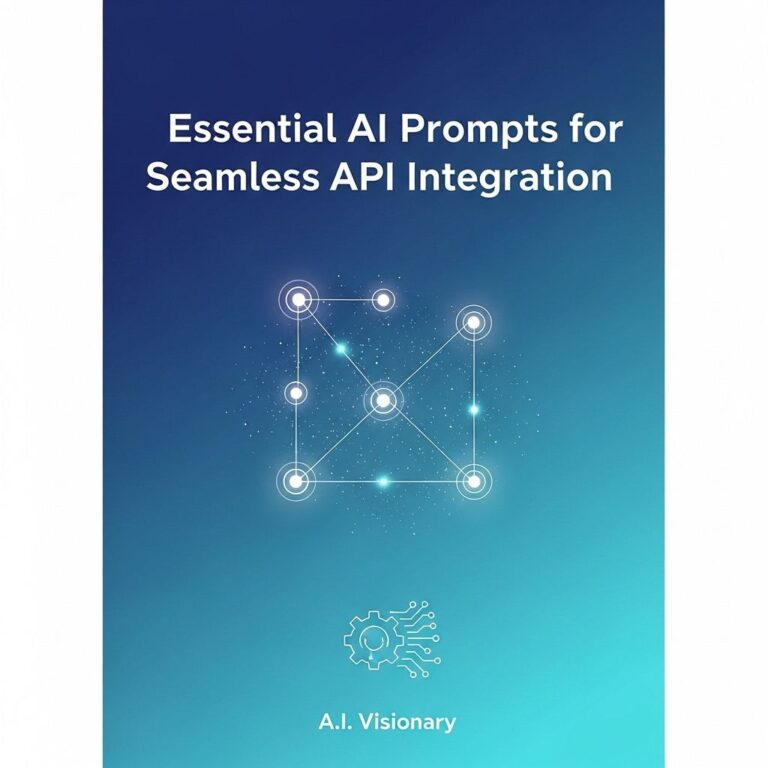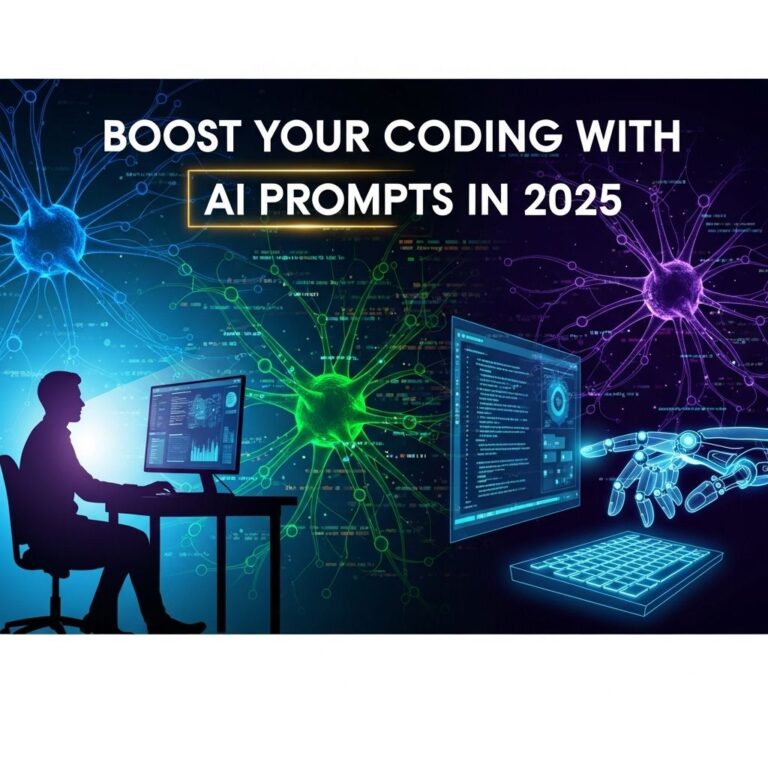The landscape of full-stack development is constantly evolving, particularly with the rise of artificial intelligence (AI) and machine learning (ML) technologies. As we look towards 2025, developers are increasingly leveraging AI prompts to streamline their coding processes, enhance productivity, and create more efficient applications. This article explores some of the top AI prompts that full-stack developers can utilize to maximize their capabilities and stay ahead in the tech industry.
Table of Contents
Understanding AI Prompts in Development
AI prompts are essentially structured inputs given to an AI model to generate specific outputs. In the realm of full-stack development, these prompts can assist in various tasks, from code generation to debugging and optimization. By understanding how to craft effective prompts, developers can significantly improve their workflows.
The Role of AI in Full Stack Development
AI is transforming full-stack development in numerous ways:
- Automation of repetitive tasks: Automating coding, testing, and deployment processes.
- Code evaluation: Quickly identifying bugs and suggesting fixes.
- Data analysis: Analyzing user behavior to inform design decisions.
- Natural Language Processing: Translating user requirements into code.
- Enhanced collaboration: Facilitating better communication among team members.
Key AI Prompts for Developers
Here are some AI prompts that can be particularly beneficial for full-stack developers in 2025:
1. Code Generation Prompts
Generating code snippets from natural language descriptions can save developers a substantial amount of time. For example:
Generate a RESTful API in Node.js that allows users to create, read, update, and delete articles.This prompt gives clear instructions for the AI to follow, resulting in a useful code snippet.
2. Debugging Assistance
Debugging can be time-consuming. Developers can use prompts like:
Analyze this JavaScript code and identify potential errors or performance issues.AI can provide insights into possible bugs and suggest corrections.
3. Test Case Generation
Testing is crucial for software quality. A prompt that encourages the AI to create test cases could look like:
Create unit tests for the following Python function that calculates the Fibonacci sequence.This helps ensure that the code is reliable and functions as expected.
4. Performance Optimization
As applications grow, so do performance challenges. Use prompts such as:
Suggest optimizations for the following SQL query to improve its execution speed.AI can analyze the query and suggest indexing or query restructuring methods.
5. Documentation Generation
Maintaining documentation is essential yet often neglected. Prompts for generating documentation include:
Generate documentation for this Python function that calculates the area of a rectangle.Good documentation improves code maintainability and usability.
Best Practices for Crafting AI Prompts
To gain the most from AI prompts, consider the following best practices:
1. Be Specific
Vague prompts yield vague results. Provide as much context as possible.
2. Use Examples
When relevant, include examples to clarify what you’re looking for.
3. Iteration
Don’t hesitate to refine your prompts based on the outputs you receive.
Top Tools Leveraging AI for Development
Several tools are leading the integration of AI into full-stack development:
| Tool | Description | Features |
|---|---|---|
| GitHub Copilot | An AI-powered coding assistant that suggests code snippets. | Context-aware suggestions, multi-language support, in-line code completion. |
| Tabnine | A tool that uses AI to provide code completions based on learned patterns. | Supports multiple IDEs, integrates with existing workflows, improves over time. |
| Codeium | An AI-powered tool focused on generating code from natural language. | AI-driven code generation, real-time suggestions, and debugging assistance. |
The Future of Full Stack Development with AI
As we approach 2025, the importance of AI in full-stack development will only continue to grow. Here are some trends to watch:
1. Increased Autonomy
AI is expected to take on more autonomous roles in development, allowing developers to focus on more strategic tasks.
2. Enhanced Collaboration Tools
Collaboration platforms will incorporate AI to facilitate better communication among distributed teams.
3. Real-Time Code Analysis
Next-generation IDEs will offer real-time analysis and suggestions, improving code quality as developers work.
4. Smarter Assistants
AI-driven assistants will evolve to handle more complex tasks, such as architectural decisions based on project requirements.
Conclusion
The integration of AI into full-stack development is set to revolutionize the way developers work. By harnessing the power of effective AI prompts, developers can optimize their workflows, enhance their coding practices, and ultimately build better applications. As we move forward, embracing these advancements will be crucial for success in the ever-changing tech landscape.
FAQ
What are the best AI prompts for full stack development in 2025?
The best AI prompts for full stack development in 2025 include those that focus on automating coding tasks, generating documentation, and optimizing application performance. Prompts that integrate machine learning for predictive analytics and user behavior insights are also highly valuable.
How can AI enhance full stack development processes?
AI can enhance full stack development processes by providing intelligent code suggestions, automating testing and deployment, and enabling real-time debugging. This leads to increased efficiency and reduced development time.
What technologies should full stack developers learn in 2025?
Full stack developers in 2025 should focus on learning technologies like AI frameworks, cloud services, modern JavaScript frameworks (like React and Vue.js), and backend technologies such as Node.js and Python. Understanding DevOps practices and containerization with Docker is also crucial.
How do AI-driven tools impact collaboration in full stack development teams?
AI-driven tools improve collaboration in full stack development teams by providing real-time communication and project management features. They help in tracking progress, managing tasks, and facilitating code reviews, which enhances team productivity.
What role does machine learning play in full stack development?
Machine learning plays a significant role in full stack development by enabling developers to create smarter applications that can learn from user interactions, improve user experiences, and make data-driven decisions.
Are there specific AI prompts tailored for frontend development?
Yes, specific AI prompts tailored for frontend development include generating responsive design layouts, optimizing user interfaces for accessibility, and creating dynamic content based on user preferences and behaviors.









